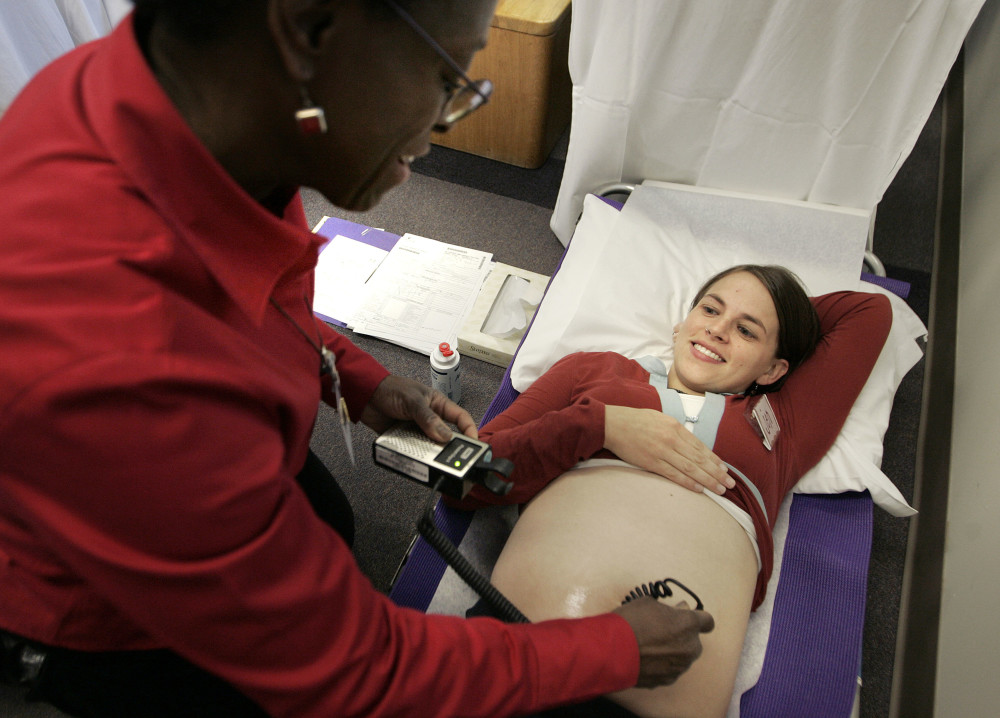By Anne Michaud
Newsday.
Supporters of job rights for pregnant women aren’t waiting for the U.S. Supreme Court to rule, or for Congress to pass the Pregnant Workers Fairness Act.
Instead, in statehouses and city councils around the country, activists are winning bipartisan support for stronger protections.
The local bills clarify federal law, which as interpreted by courts, doesn’t require employers to make minor job modifications for pregnant women unless they have a pregnancy-related disability.
As a result, pregnant women have often been forced to take unpaid leave or are fired for requesting a small accommodation.
For example, the New York City Pregnant Workers Fairness Act went into effect Jan. 30 and guarantees accommodations such as light duty, help with lifting or a temporary transfer to a less physically demanding position; permission to avoid toxins; breaks to drink water and occasional breaks to rest; time off for recovery from childbirth and unpaid medical leave.
The city law covers women who are pregnant, recovering from childbirth, nursing or have a related medical condition.
In contrast to the 1993 Family Medical Leave Act, which applies only to large companies of 50 or more employees, New York City’s law governs workplaces with as few as four employees.
New Jersey, West Virginia, Maryland and Philadelphia have passed pregnancy protections, too. “This is a problem that’s been hiding in plain sight,” said Emily Martin of the National Women’s Law Center. “Workers haven’t identified it as a legal problem. We’re helping them frame their experience. It’s not a personal problem; it’s a larger issue.”
Employers are getting the message. As a result of a class-action lawsuit brought in 2012 by the National Women’s Law Center and A Better Balance, a Manhattan-based advocate for working families, Walmart announced a new Accommodation in Employment policy.
The policy states that temporary disabilities caused by pregnancy are eligible for the same reasonable accommodations as other disabilities.
However, Walmart could still deny stay-healthy efforts by pregnant women, such as avoiding tall ladders or drinking water throughout the day, said Dina Bakst, co-founder and co-president of A Better Balance.
“While we are enthusiastic about this policy change, it does not go far enough,” Bakst said. “No woman should have to choose between her job and a healthy pregnancy.”
What’s more, many other workers are not covered because of geography, including women who work on Long Island. Bakst tells the story of Armanda Legros, who lives in Queens and worked for a trucking company on Long Island. She pulled a muscle at six months pregnant, and her doctor advised her to temporarily avoid heavy lifting.
Her boss took a look at the note and sent Legros home without pay indefinitely. “The result was devastating,” Legros told A Better Balance.
“At six months pregnant, no one was willing to hire me. I had a four-year-old at home and was the primary income earner for our family. We fell behind in rent and applied for public assistance. Two weeks before my due date, I lost my health insurance. We struggled to put food on the table; it was an extremely difficult time.”
Advocates are pushing for the New York State Women’s Equality Act, but the State Senate has failed to pass it two years in a row.
The 10-point bill was blocked in committee last week, largely because it would also strengthen abortion rights.














































































































































































































































































































































































